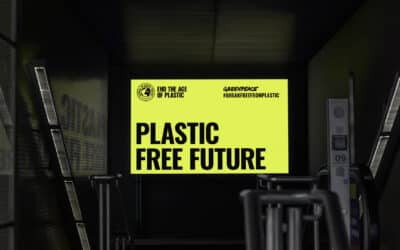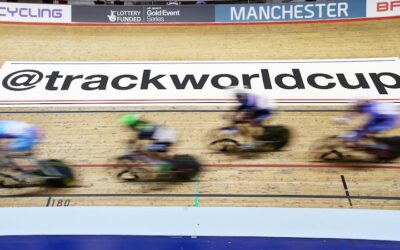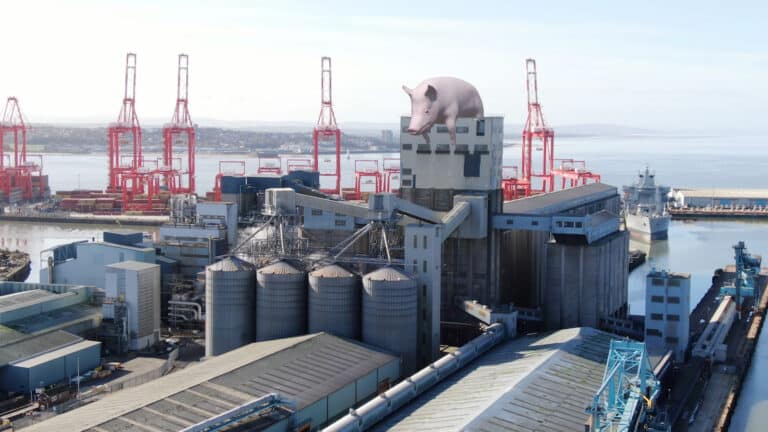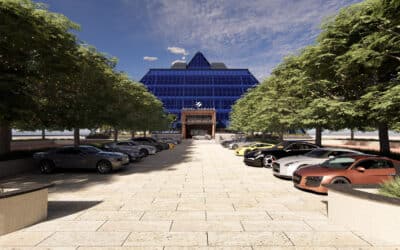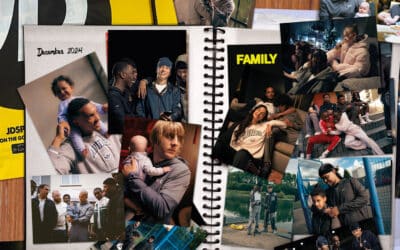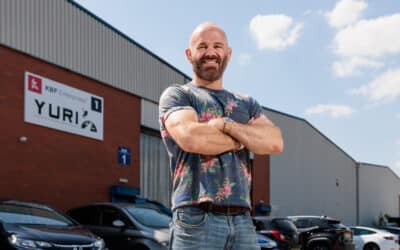A giant, virtual, female pig has appeared on top buildings owned or occupied by key meat industry players including Barclays’ Canary Wharf HQ, two Tesco stores in London and Liverpool, DEFRA, and suppliers and processors in Greater Manchester and Liverpool.
SOW AR, which is free to download via the Apple Store or Google Play, has been created as a symbol of protest and resistance against the industrial food system by artist Naho Matsuda and a small collective called A Drift of Us, supported by Greenpeace UK as part of the NGO’s Bad Taste project.
The campaigners said that Barclays financed the world’s biggest meat company, JBS, which they accuse of deforestation, to the tune of £4.8 billion between 2015 and 2022. They added that Tesco uses JBS as a supplier, while the government has failed to prevent deforestation-linked products from entering the UK.
SOW can also be seen at animal feed supplier Cargill’s soya plant in Liverpool (pictured), and at a newly opened Danish Crown plant in Rochdale, Greater Manchester, where Europe’s biggest pork producer will process cheaper pork from Denmark.
Taking the form of a digital sculpture, SOW AR invites the public to reflect on the destructive relationship between our industrial food system and the natural world. While using the app on a smartphone, the huge, sometimes sleeping, sometimes huffing, twitching or squealing female pig, can be seen watching and weighing down on the buildings of some of the UK’s biggest corporate and government actors in our industrial food system.
Earlier this month, the UN reported the worldwide cost to health and the environment caused by industrial food production to be £8tn a year.
Artist Matsuda said: “SOW is a female breeding pig, she’s monstrous and beautiful at the same time. But similar to the industrial meat industry, SOW is only visible if you choose to look.
“We hope people will travel to see SOW, to the places we’ve identified as key players in the violent and exploitative supply chain of industrial meat, and especially pork, production. Some of these places are inconvenient to get to and may appear anonymous, sitting on large industrial estates not designed for visitors. Working with visual artist Luigi Honorat, we have created SOW AR, a digital installation that aims to make people look at and think about these places differently.
“AR technology is rapidly evolving and offers new and experimental ways to share art in an ephemeral but powerful way. We hope SOW helps viewers to reflect on the invisible structures in their everyday lives and to imagine a world where power is divided differently.”
Fresh analysis from the FAIRR network of investors revealed that emissions from the world’s largest meat and dairy firms are rising year on year. FAO-OECD’s latest projections also reveal global poultry consumption is set to increase by 15%, pork by 11%, and beef by 10% by 2032.
A recent report from McKinsey also warned that up to 80m hectares of additional land, equivalent to all of Brazil’s cropland by 2030, would be needed for the world to meet projected demand for food, animal feed and fuel.
Daniela Montalto, Greenpeace UK forests campaigner, said: “Stopping climate and nature breakdown demands transformative changes to our food system. Only by cutting our meat production and consumption will we free up enough cropland to feed people first, reduce livestock emissions and create more space for nature.
“Industrial meat companies, UK banks financing them, and supermarkets whose supply chains are driving the destruction of critical ecosystems, must be government-regulated, forcing them to align with international goals for climate and nature protection.
“The government must also support UK farmers to transition to climate, people and nature-friendly farming. Meanwhile, imports of soya and other animal feed crops that drive deforestation must be banned and the 10m tonnes of annual UK food waste must be reduced, with what’s left used as animal feed.”

